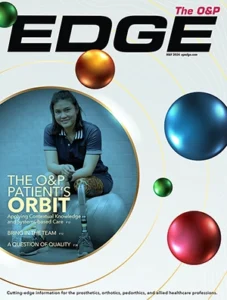In the volcanic tropical mountains of the Philippine islands, doctors and prosthetics teams may travel for days to set up a temporary, community-based treatment center for the area’s poorest inhabitants. They then wait for days longer while amputees from distant villages leave their homes to traverse rivers, mountains, and tangled rainforest to reach them. While some patients are immediately ready for a limb, many others have wounds or other problems that require weeks of healing or treatment before they can be fitted. Their frustration at travelling so far without receiving a limb may become a thing of the past though, thanks to a new partnership between Smart Communications, Makati, Philippines, and Physicians for Peace (PFP), an international non-profit that provides training and sustainable programs. The two groups have partnered to screen indigent amputees for prosthesis-readiness through the use of smart-phone technology.
The partnership will allow physicians from the University of the Philippines-Philippine General Hospital (UP-PGH) working through PFP’s Walking Free Program, to use Smart Communications’ Amputee Screening via CEllphone NeTworking (ASCENT) mobile and web application. According to a Smart press release, the app “enables PFP to provide real-time evaluation and advice on prosthesis…use for amputees in far-flung communities.” The technology would enable a single healthcare worker to travel to distant patients, then send data, including photos, about them back to a healthcare team via cell phone transmission. The team can then “immediately provide feedback to the health worker’s cell phone, sending data on bandaging, rehabilitation, wound care, and medications to facilitate prosthesis fitting and functional recovery,” Smart said.




